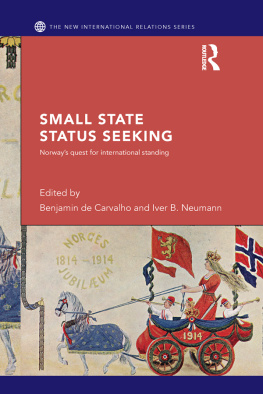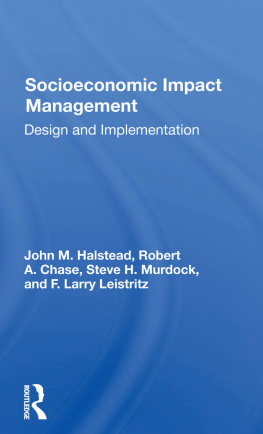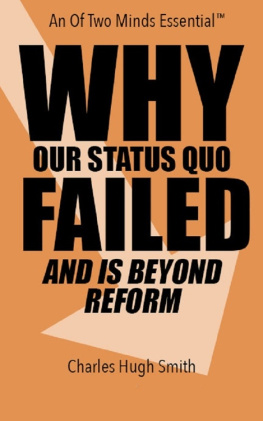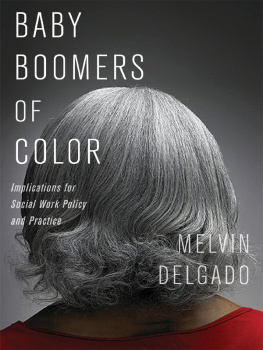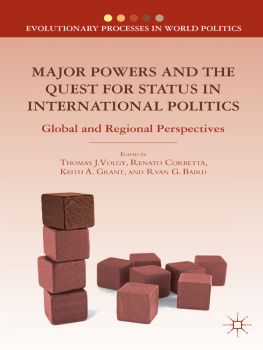Measures of Socioeconomic Status
Current Issues
AAAS Selected Symposia Series
AAAS Selected Symposia Series
First published in 1982 by Westview Press
Published in 2021 by Routledge
605 Third Avenue, New York, NY 10017
2 Park Square, Milton Park, Abingdon, Oxon OX14 4RN
Routledge is an imprint of the Taylor & Francis Group, an informa business
Copyright 1982 by the American Association for the Advancement of Science
All rights reserved. No part of this book may be reprinted or reproduced or utilised in any form or by any electronic, mechanical, or other means, now known or hereafter invented, including photocopying and recording, or in any information storage or retrieval system, without permission in writing from the publishers.
Notice:
Product or corporate names may be trademarks or registered trademarks, and are used only for identification and explanation without intent to infringe.
Library of Congress Catalog Card Number 82-50647
ISBN 0-86531-395-4
ISBN 13: 978-0-3670-1931-0 (hbk)
ISBN 13: 978-0-3671-6918-3 (pbk)
DOI: 10.4324/9780429049170
About the Book
Any study of social stratification, social mobility, occupation change, or public welfare uses some index to measure socioeconomic status or occupational prestige. This book presents for the first time a collection of papers by the major contributors to the development of such indexes. A state-of-the-art review, the book provides a basis for comparing the various approaches to understanding social stratification and social mobility and to evaluating some of the current controversies surrounding these approaches. The authors discuss and assess measures of socioeconomic status developed in the United States and Canada over the last three decades, covering occupational status scores and multivariate indexes of socioeconomic status derived from census data as well as measures of occupational prestige derived from survey responses. They pay particular attention to the implications of the increased labor-force participation of women for current measures of occupational status and prestige.
About the Series
The AAAS Selected Symposia Series was begun in 1977 to provide a means for more permanently recording and more widely disseminating some of the valuable material which is discussed at the AAAS Annual National Meetings. The volumes in this Series are based on symposia held at the Meetings which address topics of current and continuing significance, both within and among the sciences, and in the areas in which science and technology impact on public policy. The Series format is designed to provide for rapid dissemination of information, so the papers are not typeset but are reproduced directly from the camera-copy submitted by the authors. The papers are organized and edited by the symposium arrangers who then become the editors of the various volumes. Most papers published in this Series are original contributions which have not been previously published, although in some cases additional papers from other sources have been added by an editor to provide a more comprehensive view of a particular topic. Symposia may be reports of new research or reviews of established work, particularly work of an interdisciplinary nature, since the AAAS Annual Meetings typically embrace the full range of the sciences and their societal implications.
WILLIAM D. CAREY
Executive Officer
American Association for
the Advancement of Science
Contents
--Mary G. Powers
2 Measurement of Socioeconomic Status from United States Census Data--Charles B. Nam., E. Walter Terrie
3 Socioeconomic Measures from Canadian Census Data--Bernard R. Blishen, William K. Carroll
4 Occupational Status Scores: Changes Introduced by the Inclusion of Women--Mary G. Powers, Joan J. Holmberg
5 A Revised Socioeconomic Index of Occupational Status: Application in Analysis of Sex Differences in Attainment--David Lee Featheman, Gillian Stevens
6 Women, Men, and Socioeconomic Indices: An Assessment--Monica Boyd, Hugh A. McRoberts
7 Status Attainment of Young White Men and Women: Two Socioeconomic Measures--Rosemary Santana Cooney, Alice Sokolove Clague, Joseph J. Salvo
- 2 Measurement of Socioeconomic Status from United States Census Data
- 3 Socioeconomic Measures from Canadian Census Data
- 4 Occupational Status Scores: Changes Introduced by the Inclusion of Women
- 5 A Revised Socioeconomic Index of Occupational Status: Application in Analysis of Sex Differences in Attainment
- 6 Women, Men, and Socioeconomic Indices: An Assessment
- 7 Status Attainment of Young White Men and Women: Two Socioeconomic Measures
Guide
About the Editor and Authors
Mary G. Powers, a professor in the departments of sociology and anthropology at Fordham University, has specialized in the study of social stratification social demography and urban ecology. She has done extensive research on socioeconomic and occupational status measurement, including stability and change of scores, variations in status level among ethnic groups, the relationship of socioeconomic status to fertility, and changes in occupational status scores which result when women are included in the data base. She is currently chair of the Census Advisory Committee on Population Statistics, and she is a former member of the board of directors of the Population Association of America.
Bernard R. Blishenis a professor of sociology at York University in Toronto. His research has been concerned with social class and opportunity in Canada, Canadian immigrants and occupational status, and socioeconomic indices based on the 1951-71 Canadian census.
Monica Boyd, a demographer, is associate professor of sociology and anthropology at Carleton University in Ottawa. She has done research on sex differences in occupational attainment, income, and labor markets, and on the socioeconomic status of separated, divorced, and immigrant women, and she is the author of a forthcoming book, Ascription and Achievement: Studies in Mobility and Status Attainment (with J. Goyder et al.). A former member of the Canadian Advisory Council on the Status of Women, she is presently on the board of directors of the Population Association of America and a councilor of the Canadian Population Society.
William K. Carrollis assistant professor of sociology at the University of Victoria. His primary research interests are the relationships between ethnicity, gender, and socioeconomic status in Canada.
Alice Sokolove Clagueis a statistician in the United Nations Statistical Office. Her specialty is demography and her current research deals with the earnings attainment process and the multiple dimensions of sexual inequality in the labor force.
Rosemary Santana Cooneyis associate professor of sociology and research associate at the Hispanic Research Center at Fordham University. Her specialty is the study of the labor force and minority groups, and she has published on earnings attainment, female participation in the labor force and the multiple dimensions of sexual inequality.



